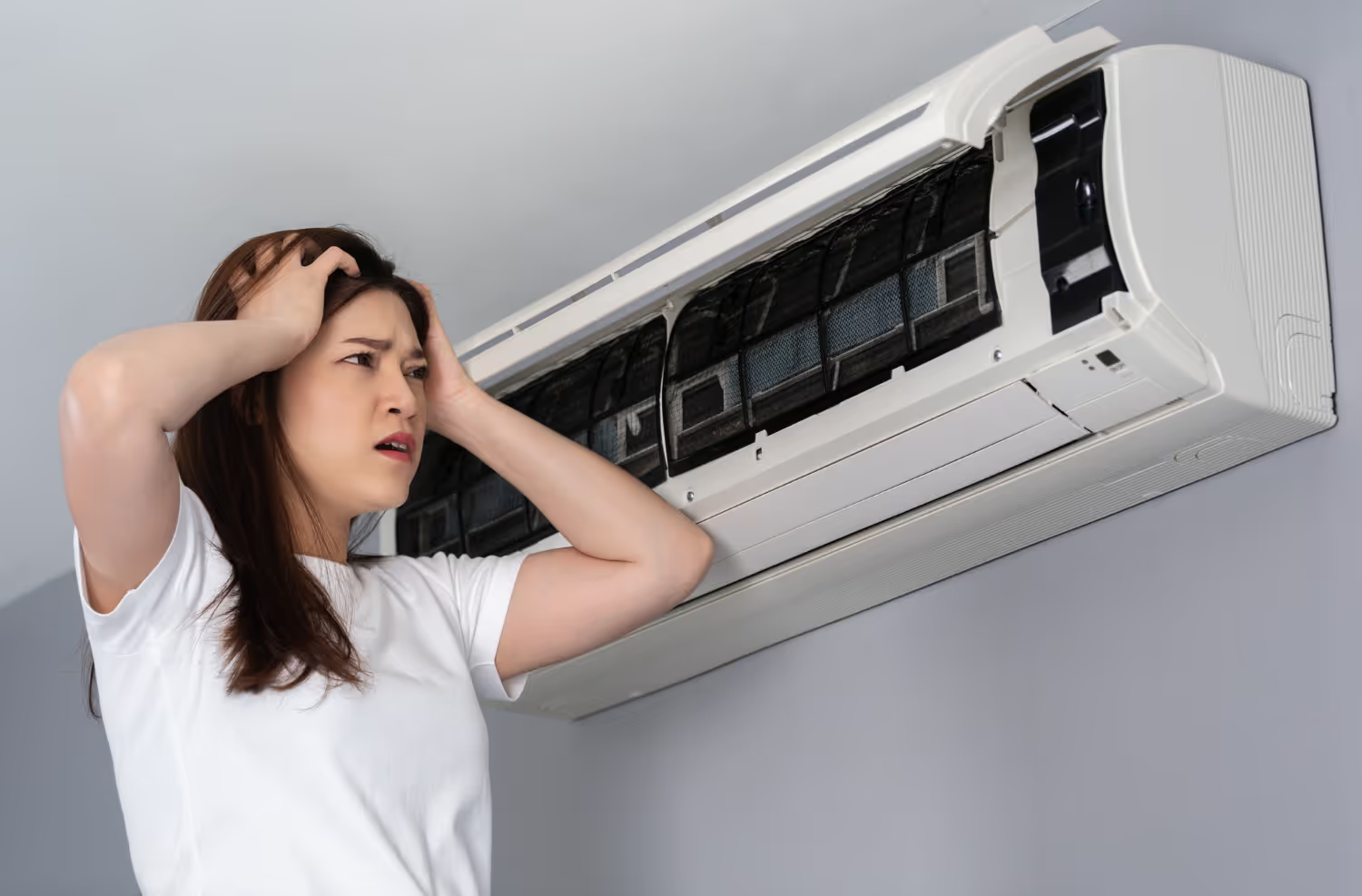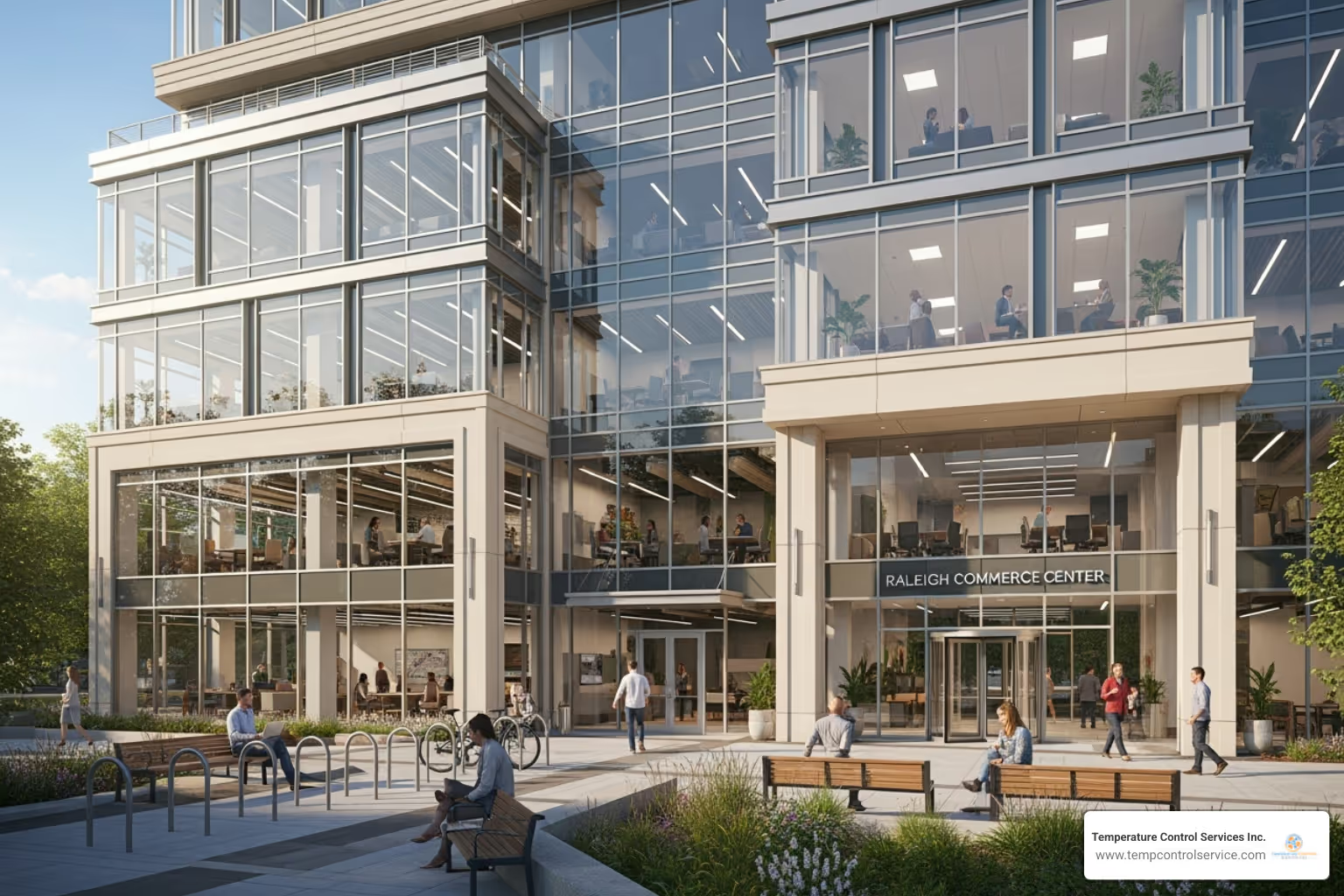
If your AC circuit breaker keeps tripping in the middle of a hot summer day in Wake Forest, it’s not just frustrating — it’s disruptive. Whether your air conditioner shuts off right when you need it most or it won’t turn back on at all, a tripping breaker can slow your whole day down. Knowing why this happens can help you catch issues early and avoid losing cooling when you need it.
Circuit breakers trip for a reason. They are designed to protect your home’s electrical system from problems, but when it keeps happening repeatedly, it is often pointing to a deeper issue. Some of the most common causes are tied to the way your AC is pulling power or how the system is wired. Below are some likely reasons your AC breaker keeps shutting off, along with what to look out for to address the problem before it worsens.
Common Causes of Tripping Circuit Breakers
Before considering solutions, it is helpful to understand what could be causing the breaker to trip repeatedly. Here are the top causes that homeowners in Wake Forest often encounter:
1. Overloaded Circuit
When you run appliances like your air conditioner together with other high-demand electronics such as washers, dryers, or microwaves, they can place a heavy burden on your electrical system. As a safeguard, your breaker shuts off the circuit to avoid overheating or damage. This is more common in older homes where the wiring or breaker panels were not built to handle today’s energy loads.
2. Short Circuit
Short circuits happen when a hot wire accidentally touches a neutral or ground wire. This causes an instant increase in electrical flow, triggering the breaker to shut off. Causes may include damaged wires, loose connections, or internal faults inside your AC’s parts. These issues often produce signs such as burnt smells or discoloration near the breaker panel. Even one event like this should be taken seriously.
3. Ground Fault
Ground faults occur when electricity veers off its normal path and flows directly to the ground. This situation can arise due to moisture accumulating inside your AC unit, worn insulation, or deteriorated wiring. Outdoor AC units in Wake Forest are frequently exposed to rain and high humidity, especially during storm season. When moisture gets into the wiring system, it can cause repeated tripping of the breaker.
By understanding these possible triggers, homeowners can become more alert to early warning signs. If you catch a strange smell, hear odd clicking sounds, or notice your breaker shutting off soon after your AC starts, avoid resetting it more than once. These clues may indicate an underlying electrical issue.
Troubleshooting Circuit Breaker Issues
While some breaker problems need professional attention, there are a few steps you can safely take before calling for help.
- Check and Reset the Breaker Safely
Flip the breaker fully to the off position, wait a few seconds, then turn it back on. If it trips again instantly, unplug any other appliances running on the same circuit and retry. If it continues to trip, there may be a more serious internal cause.
- Look Into Appliances on the Same Circuit
If multiple devices are active when the breaker trips, the issue may be an overloaded circuit. Take note of which appliances are on during the event and test whether reducing use solves the problem. If that helps, the breaker may just be overworked.
- Perform a Simple Visual Check of Wiring
If safe and accessible, examine the area near the AC unit and breaker for visible signs of damage. This includes burn marks, melted insulation, or frayed wires. Do not attempt to handle or replace anything yourself, but report what you see to a trained technician.
If none of these checks point to a clear solution, or if the breaker continues to trip after basic inspections, it’s time to seek professional help. Electrical systems, particularly those tied to HVAC equipment, can carry higher risks when left unchecked.
When to Contact Our Professionals
A breaker that keeps tripping despite your best efforts is likely due to an issue inside the unit or panel that requires trained hands. Continuing to reset the breaker without solving the root problem could worsen the damage or create safety hazards.
Take note of these warning signs that indicate it is time to call in our professionals:
- A strange burning or rubber-like odor near the AC or breaker
- Breaker box showing scorch marks or unusual discoloration
- AC starting then shutting down almost immediately
- Circuit breaker flips back off shortly after being reset
Some homes in Wake Forest have older electrical systems that were not built with the energy draw of modern AC units in mind. When breakers and wiring become mismatched with increased loads, electrical stress builds and increases the risk of failure.
In newer systems, repeated trips may mean there’s an issue with internal AC parts like the capacitor or compressor. These components cannot be easily examined without proper equipment. Attempting to open or test sealed parts could void equipment warranties or trigger additional faults.
Our professionals are trained to assess both your AC and your breaker system to identify whether the problem lies in the electrical panel, the AC itself, or both. When repairs or replacements are required, our technicians use parts and wiring systems rated for safety, performance, and compatibility with Wake Forest’s local codes.
Preventative Measures for AC Safety and Performance
Avoiding future breaker trips often comes down to keeping your AC in good shape and maintaining your home’s electrical system with regular care. When your system runs efficiently and your power load is balanced, the chance of circuit failure goes down.
Here are a few things that can help reduce the chance of AC-related breaker troubles:
1. Have your AC inspected regularly to check for wear and tear before it becomes a problem
2. Remove leaves and debris from around outdoor units after storms to improve airflow and system function
3. Try not to run multiple high-draw appliances like ovens, dryers, and ACs at the same time
4. Schedule routine inspections of your breaker panel to handle wear and potential corrosion, especially in older homes
5. Avoid plugging large devices into the same outlets or circuits used by your AC system
6. Watch for early signs that may indicate growing issues, such as temperature fluctuations or rising utility bills
Our technicians can provide suggestions based on the specifics of your home’s wiring, panel age, and AC model. If your system tends to trip only during the hottest hours or peak load times, it could mean your home would benefit from a better energy load distribution or electrical panel upgrade.
For older homes in Wake Forest, early inspections even when everything seems fine can go a long way in preventing warmer weather disruptions. Systems wear down with time, and proactive care helps avoid high-stress conditions for your AC during long stretches of hot weather.
Maintaining Peace of Mind in Wake Forest
A circuit breaker that trips over and over is not something to ignore. It might seem like a quick fix to simply reset it, but repeated issues often signal a deeper malfunction. Knowing which basic troubleshooting steps are safe to try and when to call in technician support can save time and protect your HVAC system.
Staying on top of AC issues helps improve comfort and keeps your electrical system in better condition. Whether it is an overloaded circuit or potential damage caused by moisture or surging parts, acting on early warning signs matters.
If you notice your AC clicking, losing power, or causing odd smells near the breaker panel, do not keep pressing that reset button. Let our professionals troubleshoot the system, find the fault, and make sure your equipment is in good working order. Summer in Wake Forest brings high demand on every AC unit — and yours should be running without interruption.
If recurring breaker issues are disrupting your comfort during the summer months, professional AC repair in Wake Forest can help resolve the problem quickly and effectively. Temperature Control Services Inc is equipped to perform thorough diagnostics and lasting repairs, so your AC system stays safe, efficient, and dependable. For a quick estimate or to book a service visit, please contact us today.













.svg)